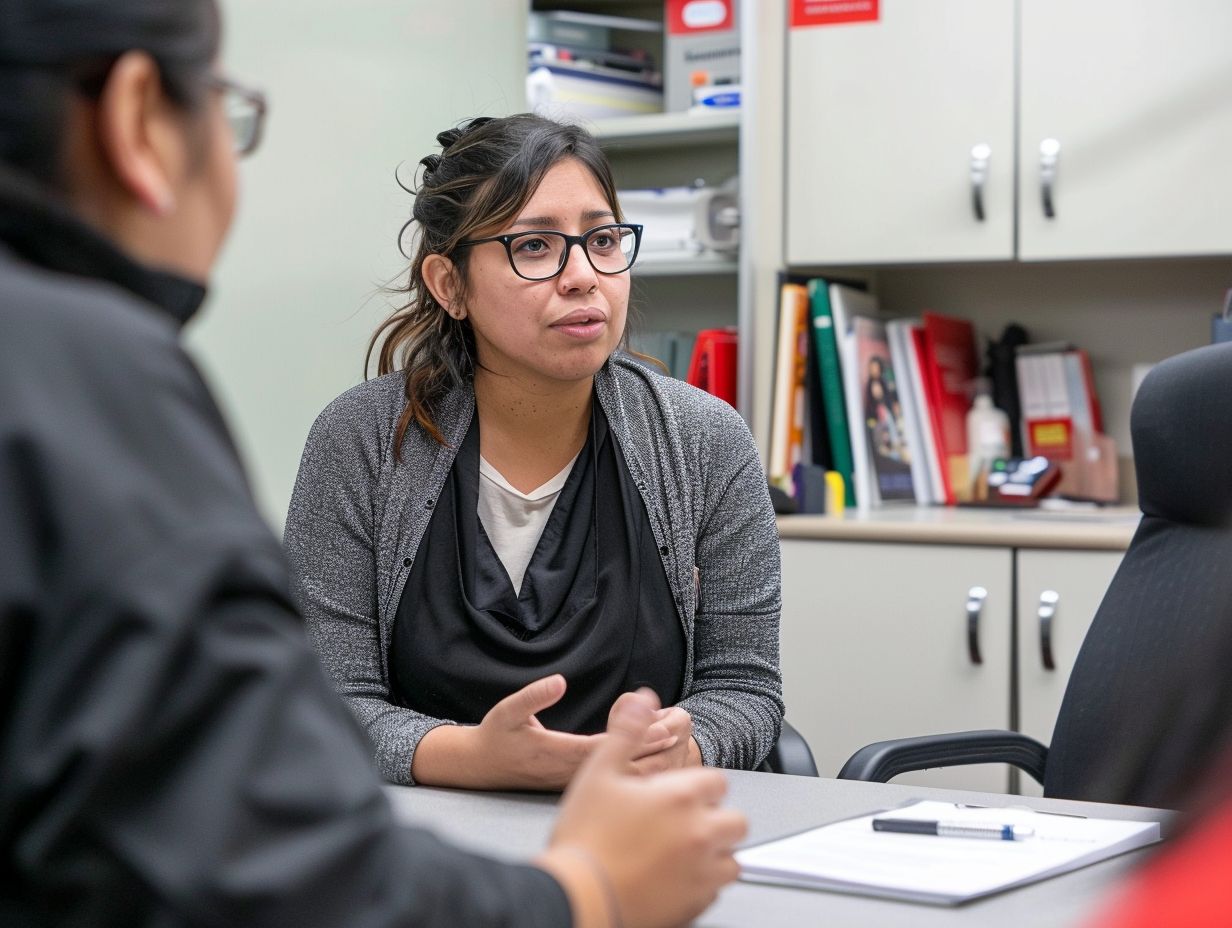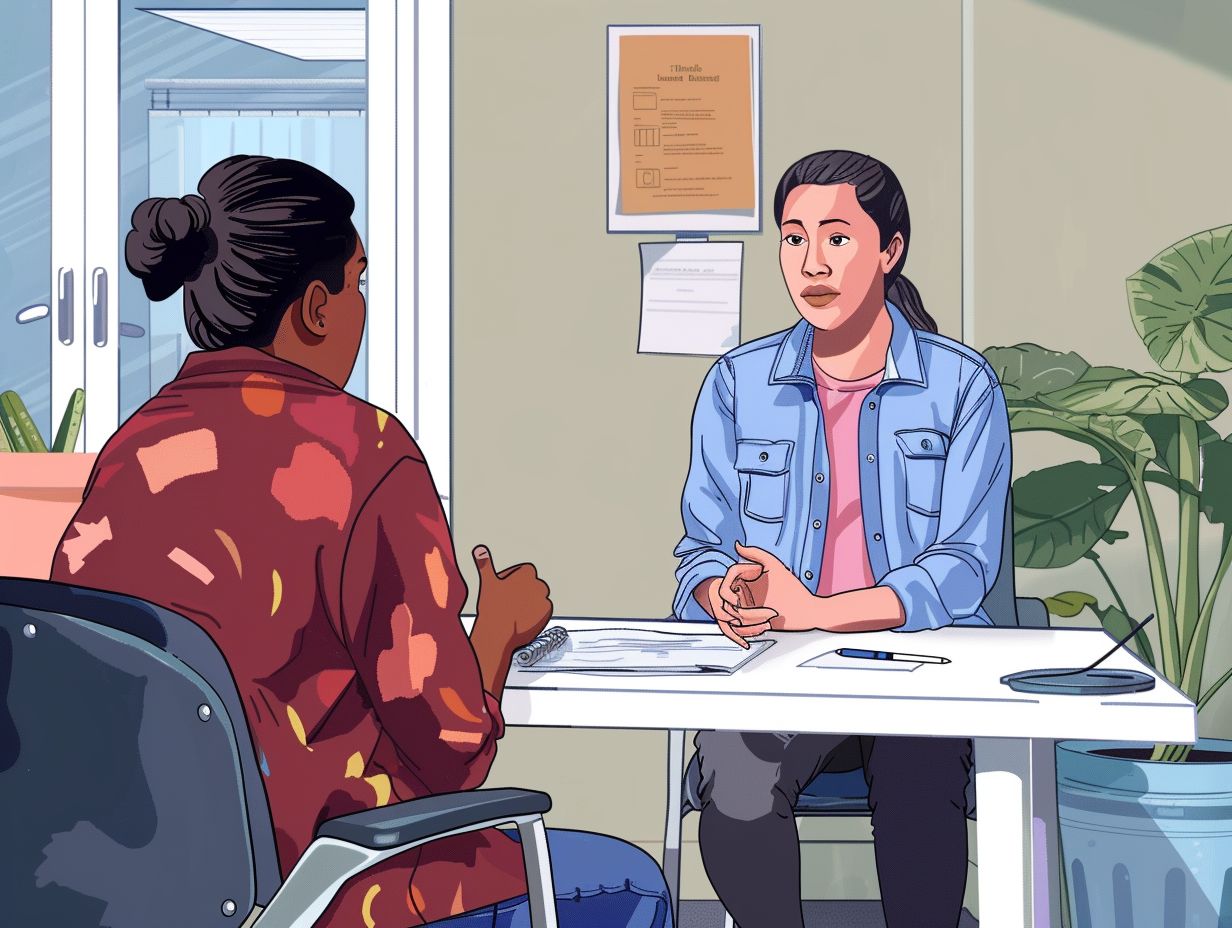Navigating the post-interview process with USCIS is a crucial stage in your immigration journey. You have to keep important steps and considerations in mind, from receiving a decision to appealing a denied outcome.
Let’s dive into the possible outcomes after your interview, how to request additional evidence, the process for appealing a denied decision, what to expect after receiving a green card, and tips for maintaining legal status throughout the post-interview process. Stay informed and prepared for what comes next in your immigration process.
Overview of Post-Interview USCIS Process

After your USCIS interview, you’ll start the post-interview process, which has some key steps that will determine your immigration status. It’s important for you to know what comes next, like how to keep tabs on your case status and what documents you need for adjusting your status. This way, you can make sure everything goes smoothly as you move towards permanent residency.
What Happens After the Interview?
After your USCIS interview wraps up, the next steps involve a deep dive into your paperwork and application to see if you qualify for that golden ticket to permanent residency.
USCIS doesn’t mess around during this review phase. They’re going to comb through all the documents you handed over to double-check for accuracy, completeness, and to make sure they back up everything you said during the interview.
They’re going to be analyzing your application info, personal details, and evidence to make sure everything lines up and is legit. So, make sure your paperwork is in tip-top shape and that you’re totally honest in your responses to avoid any hiccups or hold-ups in the decision-making process.
Having accurate and well-organized documentation can really up your chances of a smooth sail through your adjustment of status application.
Receiving a Decision from USCIS
Getting a decision from USCIS is a big deal in your immigration journey. It’s the moment that decides whether they’re giving the thumbs up or the thumbs down to your application for permanent residency status.
Possible Outcomes and Next Steps
The USCIS decision on your application could go two ways: approval means you’re on your way to permanent residency, while denial might mean exploring other options to adjust your status.
If your application gets the green light, congrats! Your next move is getting your hands on that permanent residency card, aka the green card. Keep tabs on your case status for any updates on what to do next. Following any USCIS instructions pronto is crucial.
But if your application gets the thumbs-down, don’t sweat it. You can file an appeal within a set timeframe. Talk to an immigration lawyer to go over your options and figure out the best plan for your situation.
Requesting Additional Evidence

If USCIS needs more info from you to make a decision on your case, they’ll send you a Request for Evidence (RFE). This document will spell out exactly what supporting documents they need from you to move forward with your adjustment of status application.
When and How to Submit Additional Information
To avoid any hold-ups in the processing of your adjustment of status application, make sure you get that additional info USCIS is asking for in before the deadline.
When you get a Request for Evidence (RFE) from USCIS, take a good look at what exactly they need and pay close attention to the deadline they give you. Usually, you’ve got anywhere from 30 to 90 days to respond, but it can vary based on your case.
When you send in the documents they asked for, keep things neat, make sure they’re clearly labeled, and stick to the format USCIS wants. If you don’t follow these rules or forget some key documents, your adjustment of status application could get delayed or even rejected. And that’s no fun, especially if it messes with your immigration status and future plans.
Appealing a Denied Decision
If your application gets denied, you can appeal the decision by going through a formal process. This means you’ll need to provide more arguments and evidence to USCIS or an immigration court.
Process and Requirements for Appeal
If you need to appeal a denied USCIS decision, you have to get your hands on a Notice of Appeal or Motion and gather up all the required fees and documents within the timeframe they give you.
Once you’ve got everything you need, it’s time to send it off to the right USCIS office or court. Don’t forget to double-check the address to make sure it lands in the right hands. And don’t skimp on any supporting documents like affidavits, expert opinions, or extra evidence that can beef up your case.
If you’re feeling lost in the appeal process or it’s all just too much to handle, it might be a good idea to bring in some legal backup. A savvy immigration lawyer can steer you through the appeal maze, boosting your chances of coming out on top.
Receiving a Green Card

Once your adjustment of status application is approved, you’ll get your hands on that coveted Green Card, giving you the official stamp of permanent residency in the United States. That means you can live and work in the US without any worries about breaking the law.
What to Expect After Approval
Once your Green Card application gets the green light, you can expect a warm welcome notice from USCIS to hit your mailbox soon. That’s your cue that your actual physical Green Card – the golden ticket to being a lawful permanent resident – is on its way.
This note isn’t just for show. It’s the official stamp of approval on your successful application and lays out the lowdown on what comes next. Usually, it’ll be a few weeks to a few months before your physical Green Card makes it to you after the approval. Make sure you give it a good once-over when it arrives to check for any mistakes. If you spot anything off, get on the horn to USCIS pronto to set things straight.
Having that Green Card in your pocket comes with perks, like the freedom to live and work anywhere in the U.S. But it’s not all sunshine and rainbows – you’ve also got responsibilities, such as following the law and signing up for selective service if needed.
Maintaining Legal Status During Post-Interview Process
You need to make sure you keep your legal status in check throughout the post-interview process. Any slip-up could affect your chances of getting permanent residency or successfully adjusting your status.
Tips for Staying in Compliance with Immigration Laws
To stay compliant with immigration laws, make sure you keep track of important deadlines, such as visa extension applications, and stay informed about any changes in immigration regulations that may affect your status.
Maintaining detailed records of all communication with USCIS is crucial to ensure you have documentation to support your immigration status. Understanding the procedures for visa extensions can help you navigate the process smoothly and avoid any delays that could impact your legal standing. Staying proactive by regularly checking for updates on immigration policies and seeking legal advice when needed can provide you with the necessary guidance to safeguard your status in the United States.
Frequently Asked Questions

What is a Post-Interview USCIS for Immigration and why is it necessary?
A Post-Interview USCIS (U.S. Citizenship and Immigration Services) refers to the process that takes place after an individual’s initial interview with USCIS for immigration purposes. It is a necessary step as it allows USCIS to thoroughly review all the information and documents provided by the applicant to ensure eligibility for immigration benefits.
What are the steps involved in a Post-Interview USCIS for Immigration?
The steps involved in a Post-Interview USCIS for Immigration include the USCIS officer reviewing the interview results, verifying the information and documents submitted, conducting background checks, and making a decision on the application. They may also request additional evidence or information if needed.
What happens if my Post-Interview USCIS for Immigration is approved?
If your Post-Interview USCIS for Immigration is approved, you will receive an approval notice from USCIS. This means that you have been granted the immigration benefits you applied for. You may also be required to take additional steps, such as attending a swearing-in ceremony, to finalize your immigration process.
What if my Post-Interview USCIS for Immigration is denied?
If your Post-Interview USCIS for Immigration is denied, you will receive a written explanation from USCIS stating the reason for the denial. You may be able to file an appeal or a motion to reopen or reconsider the decision, depending on the specific circumstances of your case.
What happens if USCIS requests additional evidence or information during the Post-Interview process?
If USCIS requests additional evidence or information during the Post-Interview process, it is important to provide the requested documents or information as soon as possible. Failure to do so may result in a denial of your application. You can also seek the assistance of an immigration lawyer for help with gathering and submitting the requested evidence.
How long does the Post-Interview USCIS for Immigration process take?
The duration of the Post-Interview USCIS for Immigration process can vary depending on the complexity of the case. It is best to check the USCIS website for estimated processing times for your specific application. You can also contact USCIS directly or seek the assistance of an immigration lawyer for updates on your case.